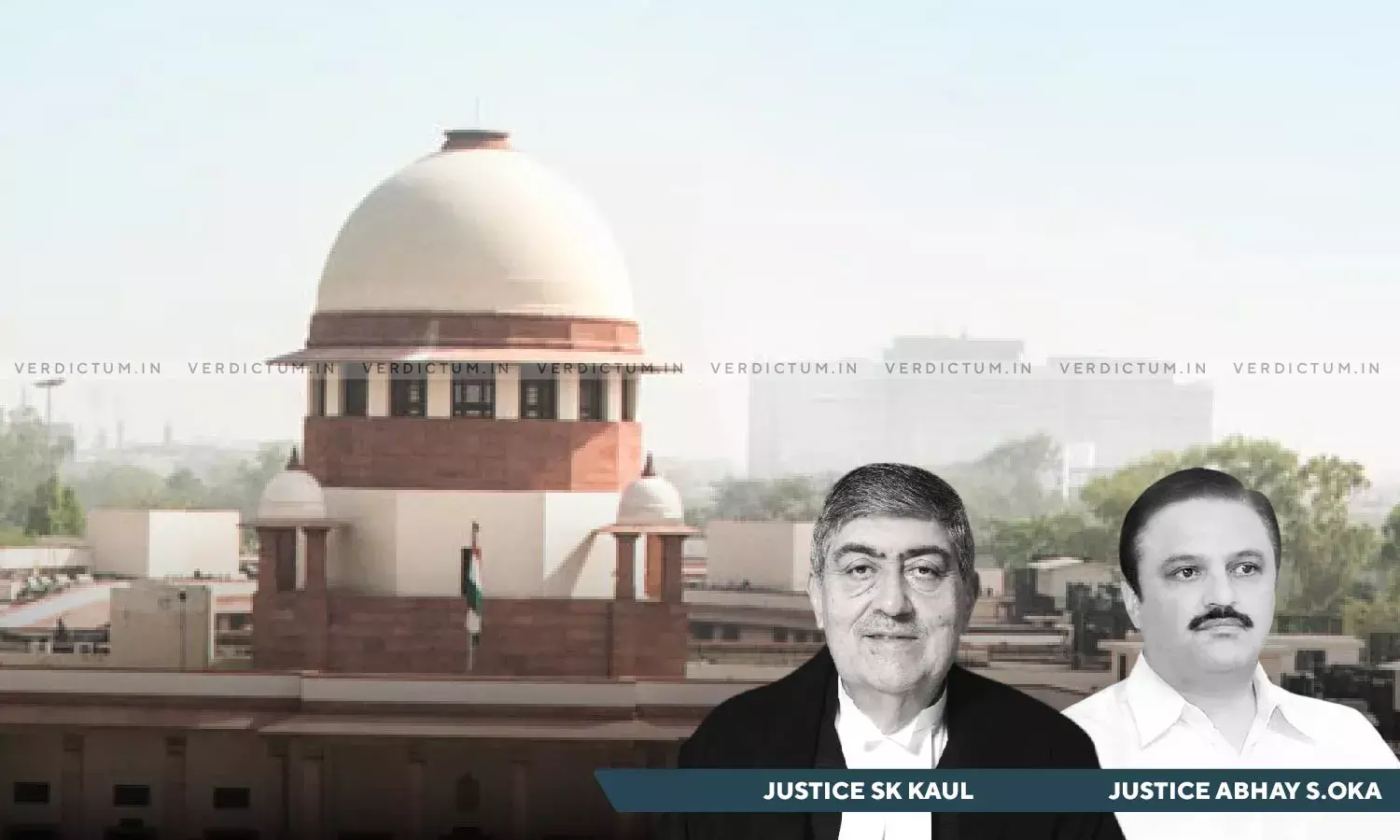Govt Resolutions Issued By Administrative Department Can't Have Status Of Statutory Rule Although Such Resolutions May Have Their Own Effect: SC

The Supreme Court has observed that the government resolutions issued by the administrative department cannot have the status of the statutory rule although such resolutions may have their own effect.
The bench of Justice Sanjay Kishan Kaul and Justice Abhay S. Oka made this observation while dealing with a dispute arising between direct recruits and promotees qua their inter se seniority.
In this case, the appellants applied for the post of Assistant Conservator of Forests, for which the selection list was published. However, instead of issuing appointment orders appointing the appellants on probation, a letter dated was issued informing the appellants that they would be sent to pre-appointment training.
Before the Maharashtra Administrative Tribunal, the appellants prayed for a declaration that their appointment as ACF be considered from the date of commencement of the training and, that the training period undergone by them be considered as period of service. They also sought a direction for payment of salary as per the pay scale prescribed for the post of ACF by considering the period of training as on probation/duty.
The Tribunal observed that the recruitment rules for the post of ACF, which were accompaniment to a Government Resolution inter alia provided that a candidate was eligible for the post of ACF after completing the prescribed course of training. However, these Rules were not framed under Article 309 of the Constitution, and were never finalized.
It was held that the appellants will be entitled to regular pay after successful completion of probation, retrospectively from the date of appointment and was declared that the appellants will be entitled for appointment as ACF from the commencement of their training.
The Government apparently accepted the aforesaid judgment and thus passed a Resolution, resolving that successful completion of training period would be considered as regular service from the date of inception of training for all service purposes.
Respondents nos. 4 to 9 filed a writ petition before the High Court, claiming that they were appointed as Range Forest Officers in 1987 to 1990 and were promoted to the post of ACF in 2014-2015. Their grievance was that though they were promoted as ACF before the appellants herein, they were shown junior to the appellants in the seniority list of ACF.
The High Court opined that respondent nos. 4 to 9 would not be affected by the Tribunal’s order to the extent of directing payment of salary and the pay scale to the appellants from the date of initiation of the training period, as the respondents’ right would only be affected while considering the seniority vis-à-vis promotion to the post of DFO.
However, on the aspect of fixation of seniority, it was opined that the case of R.S. Ajara & Ors. was on a factual scenario where, in the absence of rules regarding fixation of seniority of persons appointed to ACF, a Government Resolution was issued suggesting determination of seniority of directly recruited ACF in Gujarat State Forest Services Class II by taking into account the period of training.
The reasoning of the High Court was based on the 1984 Rules which were framed under the Proviso to Article 309 of the Constitution and have statutory force. On the other hand, the Government Resolution was issued under Article 162 of the Constitution by General Administration Department of Government of Maharashtra and hence does not have an overriding effect upon the 1984 Rules.
The High Court held that the seniority of persons selected for the post of ACF by nomination shall be counted from the date of issuance of appointment order after successful completion of training qua the person appointed to ACF by promotion.
Senior Advocate P.S. Patwalia appeared for the appellants whereas Advocate Mahesh P. Shinde appeared for Respondents.
The Supreme Court noted that “In service jurisprudence, the service rules are liable to prevail. There can be Government resolutions being in consonance with or expounding the rules, but not in conflict with the same.”
The Court while affirming the view of High Court observed that-
“The resolutions have been passed in the context that the person who successfully completes the training effectively gets the monetary compensation for his training period and is not deprived of the same. This cannot amount to giving seniority from the date of initial recruitment process to determine inter se seniority, when the Proviso to Rule 2 of the 1984 Rules makes the date of appointment for direct recruits clear.”
The Court held “On having come to the conclusion that the Government resolutions cannot override statutory rules, and the resolutions neither speaking about promotion to the post of DFO nor about seniority conclusively, the Proviso would operate with full force.”
Accordingly, the Court dismissed the appeal.
Cause Title- Ashok Ram Parhad & Ors v. The State Of Maharashtra & Ors.
Click here to read/download Judgment

